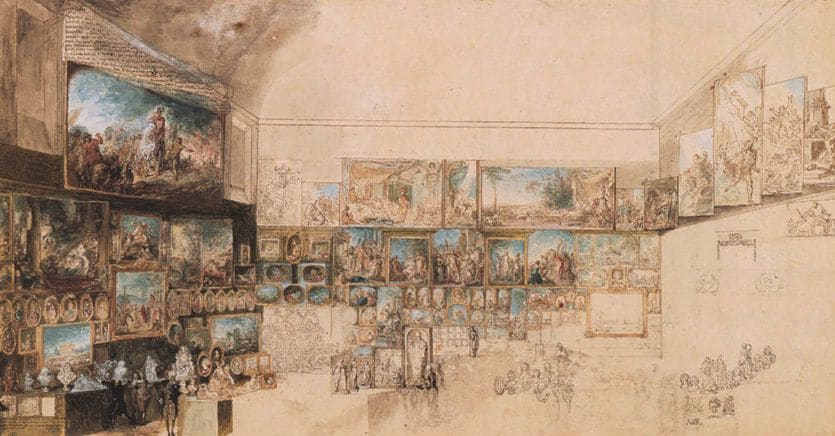The aesthetic enjoyment did not make him forget the moral evaluation and pushed him to condemn, despite the undeniable qualities, L’odalisca by Boucher. To do this, he accused the painter of having “prostituted” his wife by painting her naked. Embracing his beloved Greuze, in the enthusiasm for the uplifting “Father of a family explains the Bible to his children”, did not prevent him from letting him know that he had had a past with his beautiful wife: “This painter is certainly very much in love with his wife. I loved her very much when she was young … ». Except then cruelly underlining the aging of the model when the artist shows his wife low-cut: “The yellowish tint and the softness belong to the lady, but the lack of transparency and opacity belong to the gentleman”.
Disappointed by Van Loo’s portrait, he pointed out: “It’s not me. I had a hundred different faces in one day, depending on what struck me. I was calm, sad, absorbed, tender, violent, passionate, enthusiastic. But I’ve never been like this … I have a mask that deceives the artist, both because there are too many things fused together, and because the impressions happen very quickly in my soul and are all painted on my face ». At that point, Diderot admitted, the painter, overwhelmed by the succession of motions, was faced with a very difficult task.
The only portrait he liked was done by a curious character, Madame Therbouche, a capricious Prussian painter, determined at all costs to triumph in Paris. Always ready to help, Diderot had gone out of his way, but in vain. To thank him she had painted him bare-chested. In reality, the critic confessed, things had gone differently. He had come out of the screen where he had undressed “naked, but absolutely naked”. The conversation was resumed with “simplicity and innocence worthy of the first centuries.” The artist was not “very young, nor pretty,” but an accident had come up close during the session. “After original sin one cannot command every part of the body such as the arm and there are some that want when the son of Adam does not want and do not want when the son of Adam would like”.
Although the Chronicles of Diderot were reserved for aelite, something must have leaked out, because in 1781 an account of the exhibition had come out ironically titled Picnic suitable for those who frequent the Salon, prepared by a blind man, a blind man, an obvious reference to Letter about the blind by Diderot. The leaping tone, the ostentatious vivacity, the attempt to make the spirit were a pale echo of the philosopher’s inimitable panache. In what would be his last Salon he felt all the tiredness due to an increasingly precarious health. But he was deeply impressed by the Belisarius of a rookie Jacques-Louis David: «I see him every day and I always seem to see him for the first time».
I Salons, Denis Diderot, Curated by Maddalena Mazzocut-Mis, Massimo Modica, Bompiani, pp. 1.984, € 70
